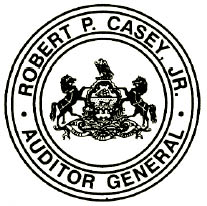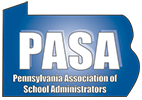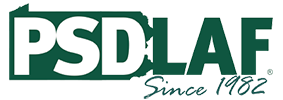Auditor General Guidance
Click here for a printable version of the Auditor General Guidance 
DEPARTMENT OF THE AUDITOR GENERAL
BUREAU OF SCHOOL AUDITS
NEED FOR PROCUREMENT CARD POLICIES
PASBO CONFERENCE - HERSHEY, PA
MARCH 12, 2004
Use of procurement cards or "purchasing with plastic" has not been a current audit focus of the Bureau. However, this should not be viewed as an invitation to let your guard down. While all the literature stresses the potential cost savings from the use of these cards, there seems to be little emphasis placed on the need for strong internal controls to avoid the potential for misuse of the cards.
While the Public School Code does not specifically address the use of procurement cards, it does address purchasing and requirement for competitive bids or Board Policies. Section 807.1 and 751 of the Public School Code provides for competitive bidding of purchases over $10,000. Additionally, these sections require the obtaining of written or telephonic quotes for purchases between $4,000 and $9999.99. Finally, these sections provide that the Board may authorize the secretary of the board or other executive to act as purchasing agent with authority to purchase items costing less than $10,000.
When the Board grants purchasing authority to individual(s), it should also provide guidance as to what would be proper and appropriate use of taxpayer funds. This guidance is provided in the form of purchasing policies. Since the use of procurement cards is commonly used for small dollar items, the Board's purchasing policies should address the use of procurement cards.
Board policy for procurement cards may include the following areas:
NEED FOR PROCUREMENT CARD POLICIES
To date the Bureau of School Audits has audited only one LEA's procurement card operations and this was as the result of a citizen's inquiry. The results of that review disclosed four areas of noncompliance with that LEA's own board policy. The four areas of noncompliance were:
While cost savings may be obtained by implementing a procurement card process, the success of the program will ultimately rest with the adequacy of the policy/control structure implemented to safeguard the program's operations.

DEPARTMENT OF THE AUDITOR GENERAL
BUREAU OF SCHOOL AUDITS
NEED FOR PROCUREMENT CARD POLICIES
PASBO CONFERENCE - HERSHEY, PA
MARCH 12, 2004
Use of procurement cards or "purchasing with plastic" has not been a current audit focus of the Bureau. However, this should not be viewed as an invitation to let your guard down. While all the literature stresses the potential cost savings from the use of these cards, there seems to be little emphasis placed on the need for strong internal controls to avoid the potential for misuse of the cards.
While the Public School Code does not specifically address the use of procurement cards, it does address purchasing and requirement for competitive bids or Board Policies. Section 807.1 and 751 of the Public School Code provides for competitive bidding of purchases over $10,000. Additionally, these sections require the obtaining of written or telephonic quotes for purchases between $4,000 and $9999.99. Finally, these sections provide that the Board may authorize the secretary of the board or other executive to act as purchasing agent with authority to purchase items costing less than $10,000.
When the Board grants purchasing authority to individual(s), it should also provide guidance as to what would be proper and appropriate use of taxpayer funds. This guidance is provided in the form of purchasing policies. Since the use of procurement cards is commonly used for small dollar items, the Board's purchasing policies should address the use of procurement cards.
Board policy for procurement cards may include the following areas:
- restrict the obtaining of cash;
- monthly credit or usage limit;
- single transaction limit;
- daily usage limit;
- merchant category code (MCC);
- cardholder report of account activity to management;
- assignment of cards to individuals; departments, or cost centers;
- employee reconciliation of purchases to billing statements;
- statement/sales receipts storage;
- supervisor review/sign off approval; and
- cardholder misuse insurance.
NEED FOR PROCUREMENT CARD POLICIES
To date the Bureau of School Audits has audited only one LEA's procurement card operations and this was as the result of a citizen's inquiry. The results of that review disclosed four areas of noncompliance with that LEA's own board policy. The four areas of noncompliance were:
- two administrators made personal purchases (Lane Bryant department store and personal car repair);
- purchases of meals, travel and gas which were prohibited by the LEA's policy;
- purchases over $5,000 were made with the procurement card instead of using a purchase order as required; and
- during a three month period a total of2l purchases were identified as being made by someone other than the cardholder. The cardholder had allowed someone else to use his/her card.
While cost savings may be obtained by implementing a procurement card process, the success of the program will ultimately rest with the adequacy of the policy/control structure implemented to safeguard the program's operations.
REBATE
CALCULATOR
Pennsylvania Rebate
Ohio Rebate

Sponsoring Organizations
EasyProcure, LLC is a joint venture between the Pennsylvania Association of School Administrators (PASA), Pennsylvania Association of School Business Officials (PASBO), Pennsylvania School Boards Association (PSBA), Ohio Association of School Business Officals (OASBO), Buckeye Assocation of School Administrators (BASA), Ohio School Boards Association (OSBA) and the Pennsylvania School District Liquid Asset Fund (PSDLAF).






